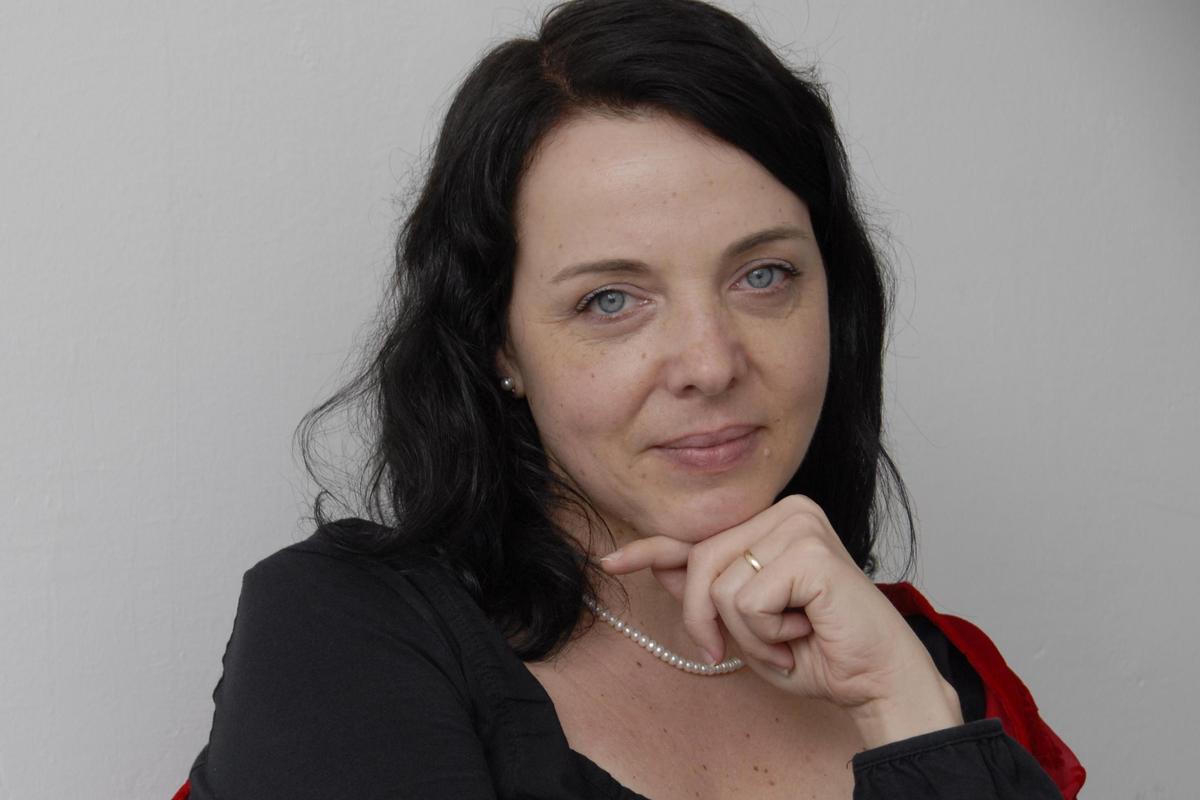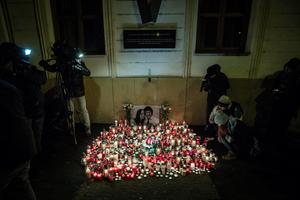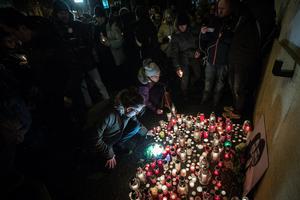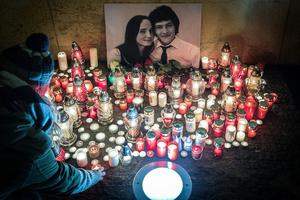Slovakia is standing at a crossroads and much will depend on whether Robert Fico realises that this is a crucial point and how much he wants to stay in power, says Beata Balogová, editor-in-chief of Slovakia’s leading daily Sme and member of the IPI Executive Board. In the aftermath of what has happened in Slovakia, politicians need to think about how crucial free media are for them to maintain the functionality of democracy, she opines.
The Slovak Spectator spoke to Balogová on Wednesday, February 28, just moments after Mária Trošková and Viliam Jasaň, people whom the murdered journalist Ján Kuciak mentioned in his last, unfinished investigative report implying their links with the Italian mafia, announced in a joint statement that they were temporarily leaving their posts at the Government’s Office in connection with the murder.
In this interview, Beata Balogová talks about:
-How journalists in the newsroom she leads reacted to the murder of Ján Kuciak
-What consequences will the murder have for the media's freedom in Slovakia
-What she thinks about the reactions of politicians and how she perceives the resignation of the culture minister
-Where the murder of a journalist leaves Slovakia compared to Hungary or Poland
TSS: How did these past two days look in your editorial room and for you?
Beata Balogová (BB): The first reaction was shock, because we have never had this experience before, the murder of a journalist. We did realise that it was crossing a brutal line and nobody knew what would come after that. We were aware that Robert Fico would have to come up with a very serious explanation. We understood that it was going to be a huge challenge for the media community. Afterwards we realised that the most we can do is just do our job. That is why we decided we had to finish Ján Kuciak’s investigation and do our best to come up with the story. This is what we did at Sme. The next day we actually published a story that our reporter Adam Valček worked on with Kuciak. This was also a very strong message that whoever, for whatever reason killed Kuciak, they achieved the complete opposite thing because the story was out and we knew the next day that Aktuality.sk and other media were going to publish Kuciak’s story, which they did today. The story really attracted a huge number of readers. Only at Sme it was some 100,000 and on other websites where it was running it attracted many readers.

TSS: How did journalists in your newsroom feel in the aftermath of the murder? Was there a lot of fear?
BB: Some were worried, but not for their life. It was a fear for society. What does this mean? Does it mean we are taking the path of a mafia state? Does this mean we are going to accept the radicalisation of our lives? It opened up a lot of questions. At this point, we cannot certainly say that he was killed because of this particular story looking into the ties of some people close to the government with the Italian mafia. Police are working on the assumption that the reason was his work. Even though we do not know all this for certain, we have to look at it as a strong symbol and we really have to look at the atmosphere in a society that has become even more radical over the past few years and it is radicalised because of some politicians, including Robert Fico, who started using much stronger language when addressing journalists. He called my journalists and journalists from Denník N ‘jihadists’. He has a history of very bad relations with media. I understand he wants to separate these two things. I think that it would be unfair to say this is why Kuciak was killed. We are not saying that. I am only saying that the murder of a journalist is so serious symbolically for the media as well, that it cannot be solved only by saying: Ok, we are going to investigate it. It requires a much larger discussion about the role of the media and about much larger issues.


 Beata Balogová (source: Jana Liptáková)
Beata Balogová (source: Jana Liptáková)


